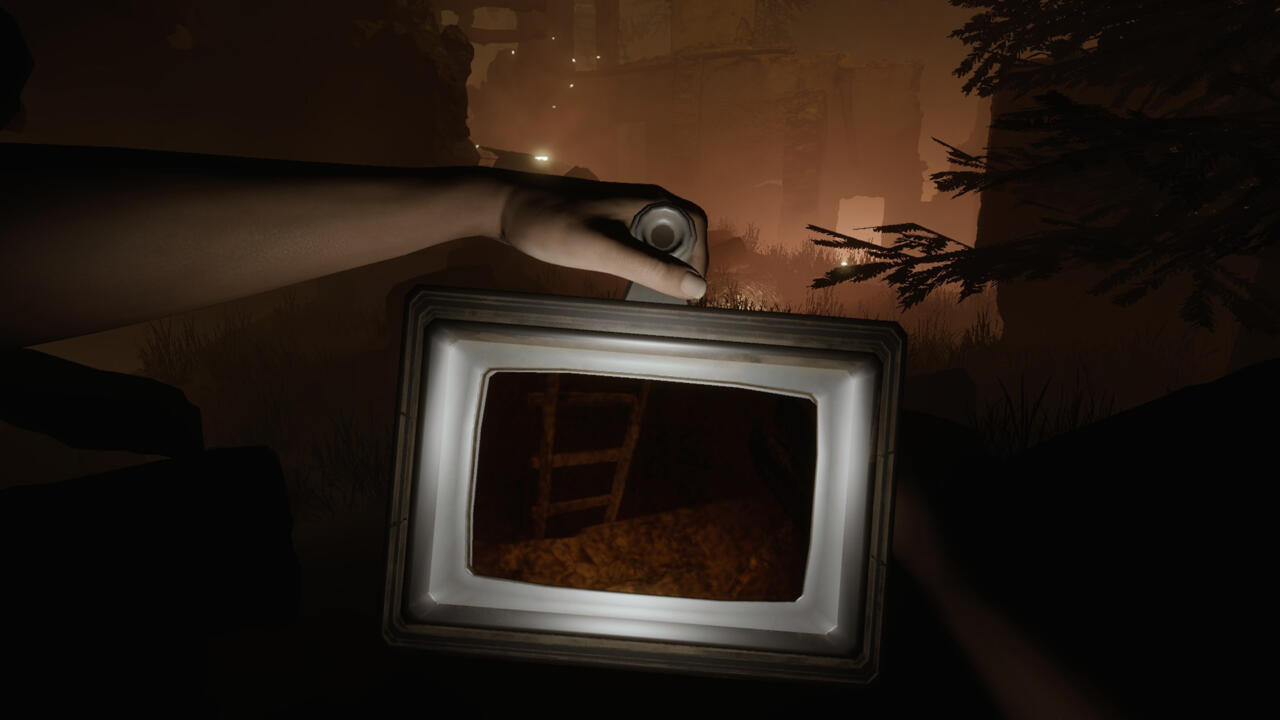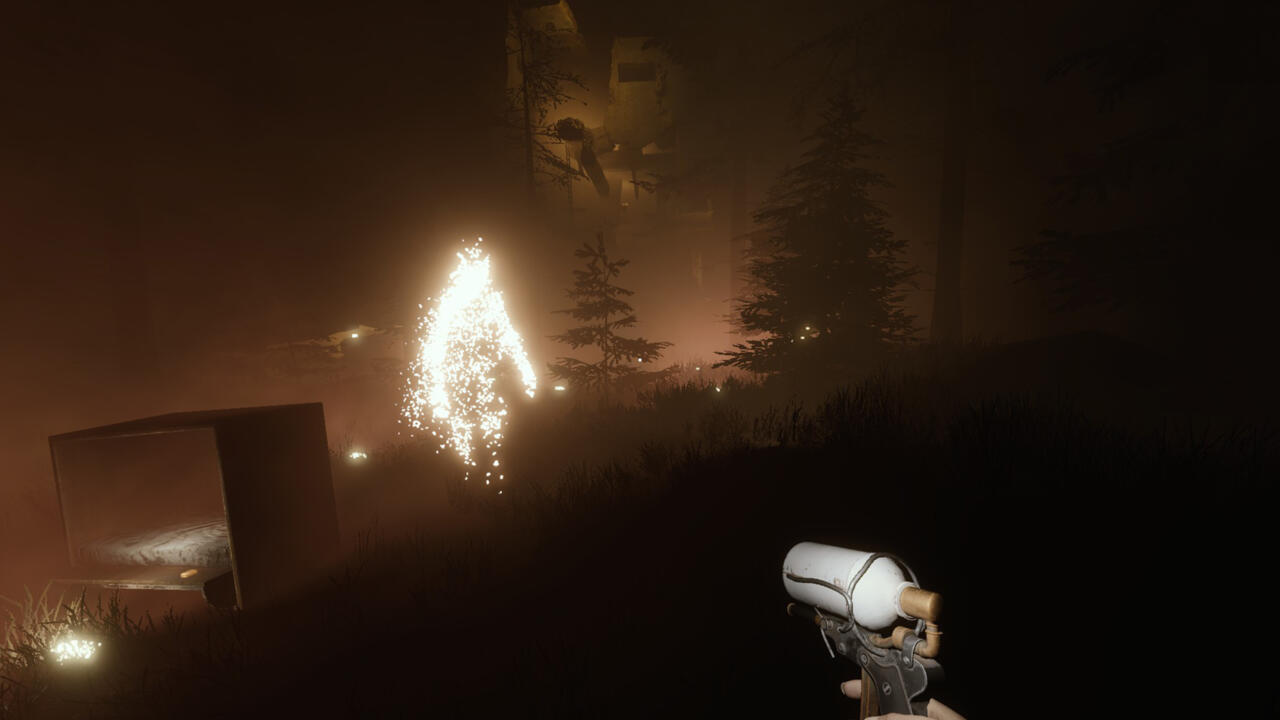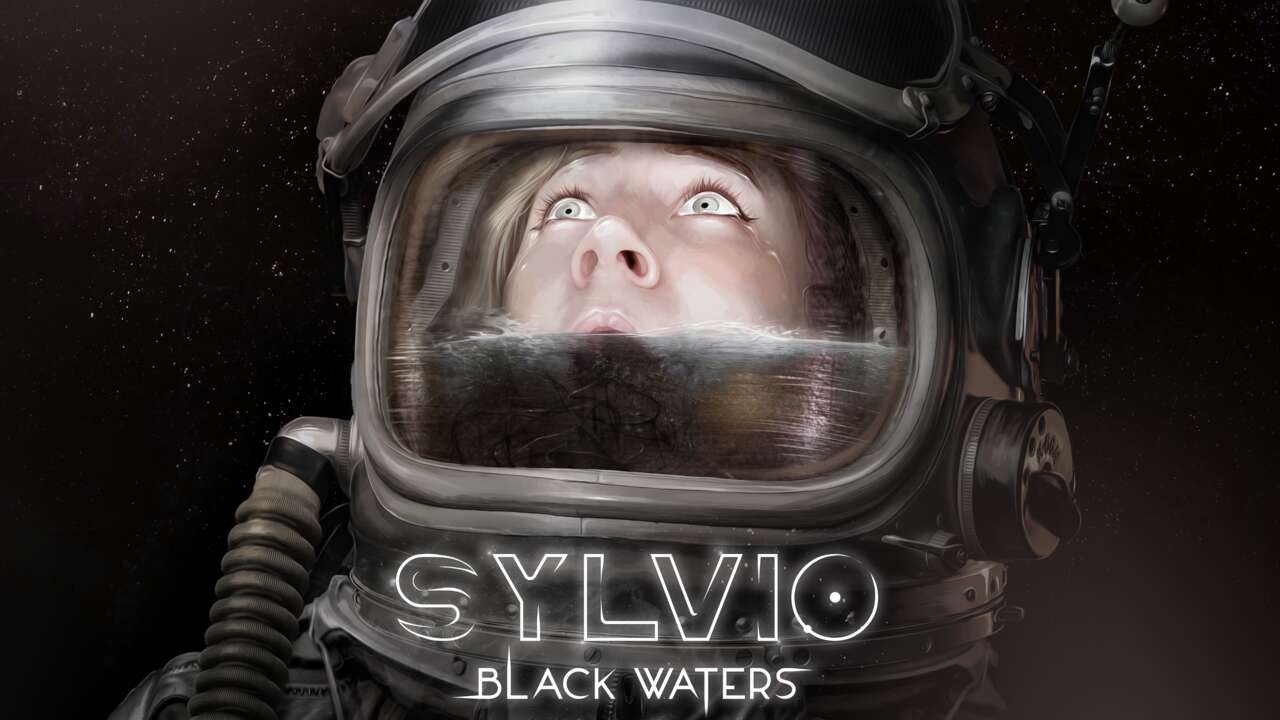Sylvio: Black Waters might be the most under-the-radar third entry in a series I or perhaps even GameSpot has ever reviewed. The ghost-hunting series has been a deeply hidden gem in my mind for many years now, and Black Waters continues its winning streak. It keeps intact the best parts of the previous games while adding some new wrinkles and reviving some mechanics it had previously left behind. Not all of that works in its favor, but its strengths are so notable that it remains one of the year’s best horror games.
In Sylvio: Black Waters, you play Juliette, a ghost hunter. In the previous two games, she spent her time in creepy fairgrounds and haunted houses, recording staticky electronic voice phenomena (EVP), and in the sequel, even capturing ghostly images, too. Black Waters makes that the focus once again, although this time, it does so in a setting so peculiar and unpredictable that it gives the game an element of science fiction.
At first, I thought the strange, Mars-like dreamworld, where everything is rust-colored and decorated as though some unseen landscaper is practicing a stream-of-consciousness exercise, would be difficult to get into. It was almost too alien, unlike the more earthly and relatable locales I explored in the earlier games. In those cases, it felt like a place I could in which I could find myself. Black Waters’ setting doesn’t have that trait, but it doesn’t take long for it to reveal its own alluring creepiness.
Its shifting and labyrinthine space means you’ll sometimes start in one of the game’s five open-ish hubs with parts of the world upside down or perpendicular to where you find yourself, but as you crawl through crevices, climb dilapidated brick walls, and scale ladders, the world will shift, as though you’re crawling on a sphere moving in the opposite direction of you. Despite how unfamiliar and dizzying the world is, I also never really got lost. It has a good way of subtly directing you through a level; you don’t feel in control of its world, but neither are you stuck in place. It perpetually pulls you through.
The goal is to explore the world, discovering fragments of voices and videos belonging to the people who have seemingly come and gone before you arrived. Like in past Sylvio games, this audio design is Black Waters’ greatest asset. Stroboskop is a tiny team, with past games being developed by one person, and this one has only a few more credited. But the team has always been true masters of unsettling audio design. Few games have ever creeped me out as this series does, and even in this third go-round with the central mechanic of capturing ghostly voices on tape, I still genuinely got shivers and goosebumps several times in my five-hour playthrough.
Growing up, I always loved browsing ghost-hunting websites. I loved to suspend my disbelief and get spooked by the EVPs I’d find online. Sylvio rekindles this appreciation within me, as its manufactured EVPs sound so much like the “real” thing that they are indistinguishable from one another. As you find recordings, you need to play them backward or forward, as well as on one of three speeds. Backmasked messaging is unnerving even when it’s just on a Beatles album, so when the context is missing or dead people are talking about witches, devils, and a foreboding lake located somewhere in the strange world you explore, the effect is much greater.
So many of the voices you discover are poetic in nature, like a dream half-remembered and restitched together by emotions more than words. It furthers the game’s greatly disconcerting atmosphere by giving you vague allusions to danger or violence, but not enough of an explanation to make sense of it all.
Without that cognitive closure, a mind tends to fill in the blanks, like a monster you can hear off-screen but never see. Playing it alone at night and with headphones on, Black Waters had me peering over my shoulder more than once. I stress this because I’ve played horror games all my life, so very few games have this effect on me anymore, but three of them now come from this one series.

Juliette doesn’t know why she’s there or what the place even is, which creates a compelling central mystery the previous games didn’t have, and it’s made better by her having a companion on the radio, Lee, who introduces himself as the lone survivor of the hazy world. Their back-and-forth makes for more front-and-center story than ever before in a Sylvio game, and their equally but dissimilarly moody performances make it all work. Juliette’s hushed tones have always been a pitch-perfect companion to Sylvio’s vibe, and Lee’s performance always skews just a little bit off, like he’s an unreliable narrator in Juliette’s story, but you can’t quite place why you feel that way.
All of this is aided by another remarkable soundtrack, just like the other games. Stroboskop’s Niklas Swanberg has a background in composing music and it shows as the series’ audio is consistently excellent. In Black Waters, the music can be hard to describe as it’s quite varied–sometimes oddly folksy, like the music found coming from a radio at an abandoned campsite. Other times, it’s breathy and churchy.
The game also debuts a new feature in which you can find pieces of original songs and put them back together, which adds more interesting background to the story. The eclectic music only really shares one attribute regardless of which track is playing: It’s disquieting–an earworm you wish you could forget because it’s gutturally upsetting. In a horror game, that’s like magic.
The original Sylvio involved some combat elements, which I didn’t enjoy. I preferred the sequel’s way of focusing almost exclusively on the EVP mechanics; it made me feel like Ethan Hawke’s character in Sinister, dissecting these cursed tapes and discovering things I wish I didn’t. Sylvio: Black Waters revives and reimagines the series’ combat mechanics, though I think they once again aren’t a strength of the series.
As you move through levels, you’ll find several air-powered guns that you load with some kind of liquid and marbles. These guns are seemingly meant to offer different strategies for different situations, like a rifle that would perhaps shoot farther than the pistol- or shotgun-like options, but in practice, I was able to use any of them for any occasion, which made the variety pointless. The range was irrelevant. The purpose of the gunplay being there at all is to dispel the ghosts that sometimes try to do you harm as you progress. The problem, however, is that they aren’t very difficult to defeat. Amber-like humanoid statues are scattered throughout each level, and sometimes they come to life and chase you as wispy spirits. Once ambulant, the longer they exist near you, the more damage you take, but you can counter this by destroying the statues with marbles before they awaken.

In theory, there’s a solid mechanic here in which you must decide to expend a marble to preemptively destroy the ghost, or take your chances and see if it doesn’t awaken, but because ammo is abundant so long as you’re diligently searching each level, this calculus is rarely relevant. Only in the last level did I have to make such wagers. For nearly all of the game, I simply destroyed the statues from a safe distance before they stirred, which I found is the ideal way to play for a secondary reason: Some statues hid more audio to dissect, which allowed me to piece together about a dozen additional stories beyond the five mandatory tales one unravels by beating the game.
The third Sylvio game is a worthy successor to the two supremely haunting games that came before it. Though it reverts to featuring some of the first game’s lesser parts, it also carries over and improves on the best aspects of both its predecessors. Sylvio: Black Waters reaffirms what was already obvious to me: Stroboskop’s audio design is on a level few other horror games can compete with, and with some future honing in on and improving the mechanics surrounding that centerpiece, the series still has room to grow. Even in this state, however, Sylvio: Black Waters will stick with you longer after the static dissipates.
